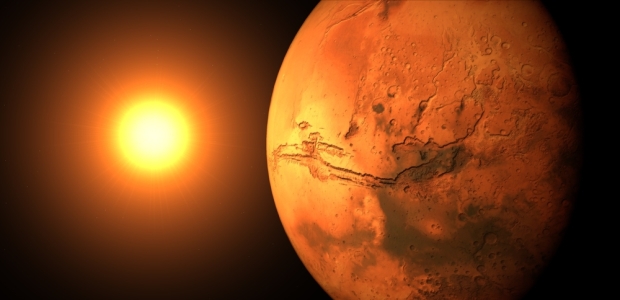
NASA Awaits Research Proposals to Support Deep Space Missions
The agency's deadline for proposals is Jan. 4, 2018. NASA expects in late summer 2018 to select 15 to 18 proposals for grants with a maximum duration of seven years.
With proposals due by Jan. 4, 2018, NASA's Human Research Program soon will enter the next phase of its project focused on the safety of astronauts during deep space missions. Step-2 proposals are due April 4, 2018, and the selection of as many as 18 proposals for grants with a maximum duration of seven years is set for Aug. 31, 2018.
The agency has sought proposals for research that, when combined with ongoing NASA studies, could enable safer and more effective travel to destinations beyond low-Earth orbit, such as a three-year round-trip mission to Mars. That's far longer than the typical International Space Station assignment of six months. An article on the NASA website this week asked whether the effects of being in space change over time; NASA wants the scientific community to propose research that will help bridge the gap in our knowledge regarding long-term experiences in space.
"To draw any conclusions about the cumulative effects of exposure to space, we need to observe more astronauts spending larger amounts of time in the space environment," said John Charles, Ph.D., associate director for Exploration Research Planning of the Human Research Program at NASA's Johnson Space Center. "Scientists can use the information to predict physical and behavioral health trends."
Research from the selected proposals is expected to build on data collected during the first one-year mission, when Scott Kelly and Mikhail Kornienko spent nearly a year in space. The agency asked researchers and scientists submitting proposals to consider a program that could include as many as 30 astronauts: 10 to conduct shorter missions of up to two months, 10 as part of standard six-month missions, and 10 one-year missions in space. An additional 18 research subjects are proposed for Earth-based analog studies.
The information these studies provide will help NASA address the five hazards of human space travel: space radiation, isolation and confinement, distance from Earth, gravity fields (or lack of them), and hostile/closed environments. "As NASA moves into a proving ground of missions near the Moon, the agency would continue to test capabilities. NASA could then extrapolate trends from six months out to two or three years, the expected duration of a typical mission to Mars. Ultimately, such studies could enable NASA to develop and test technologies and countermeasures to protect the health and safety of crew members making history on interplanetary expeditions," the article explained.